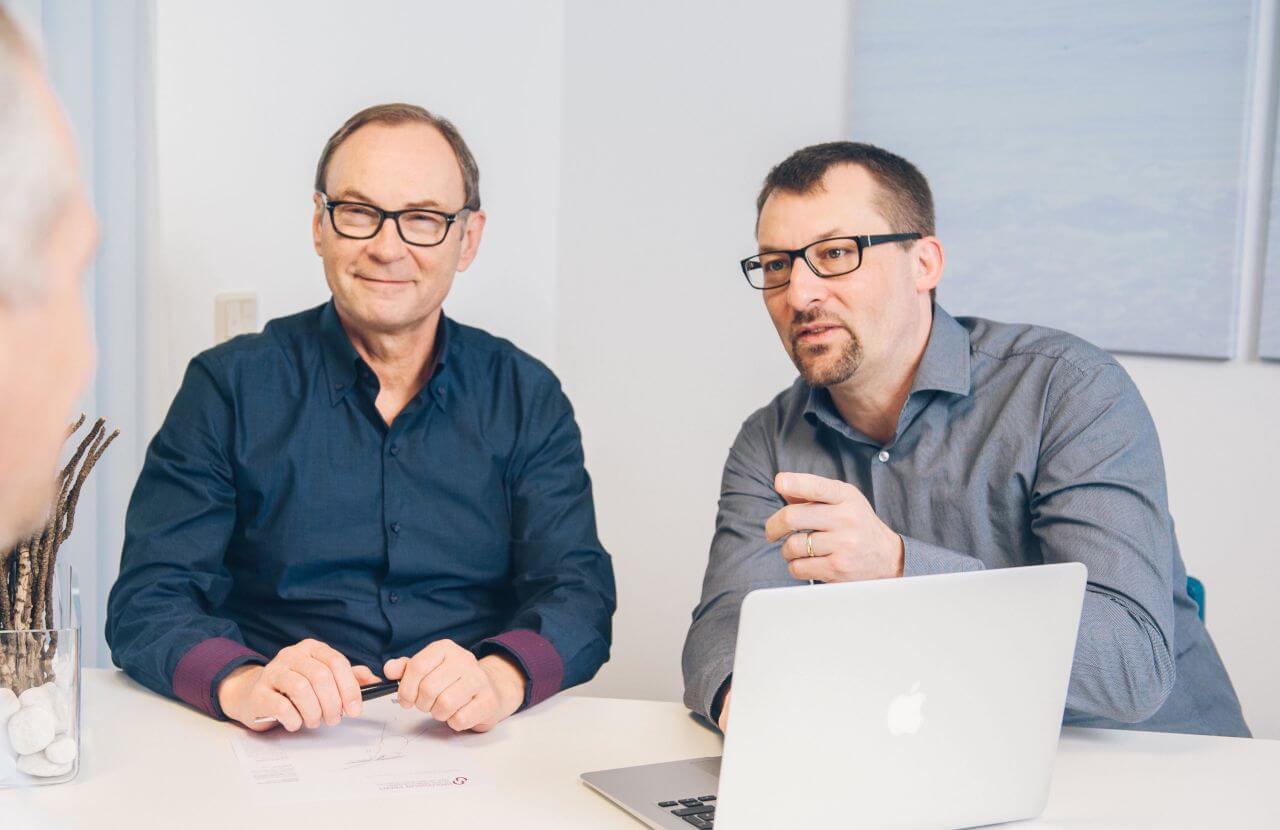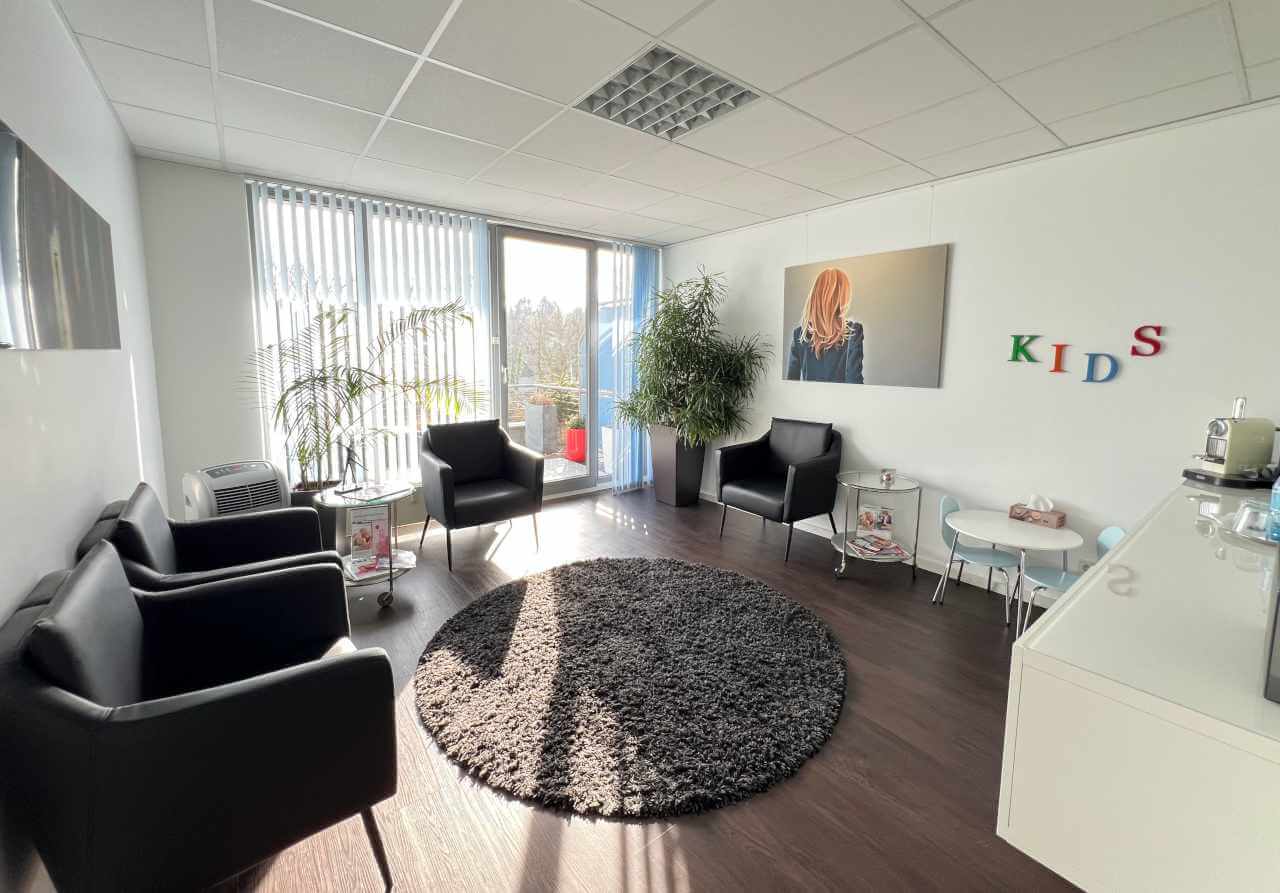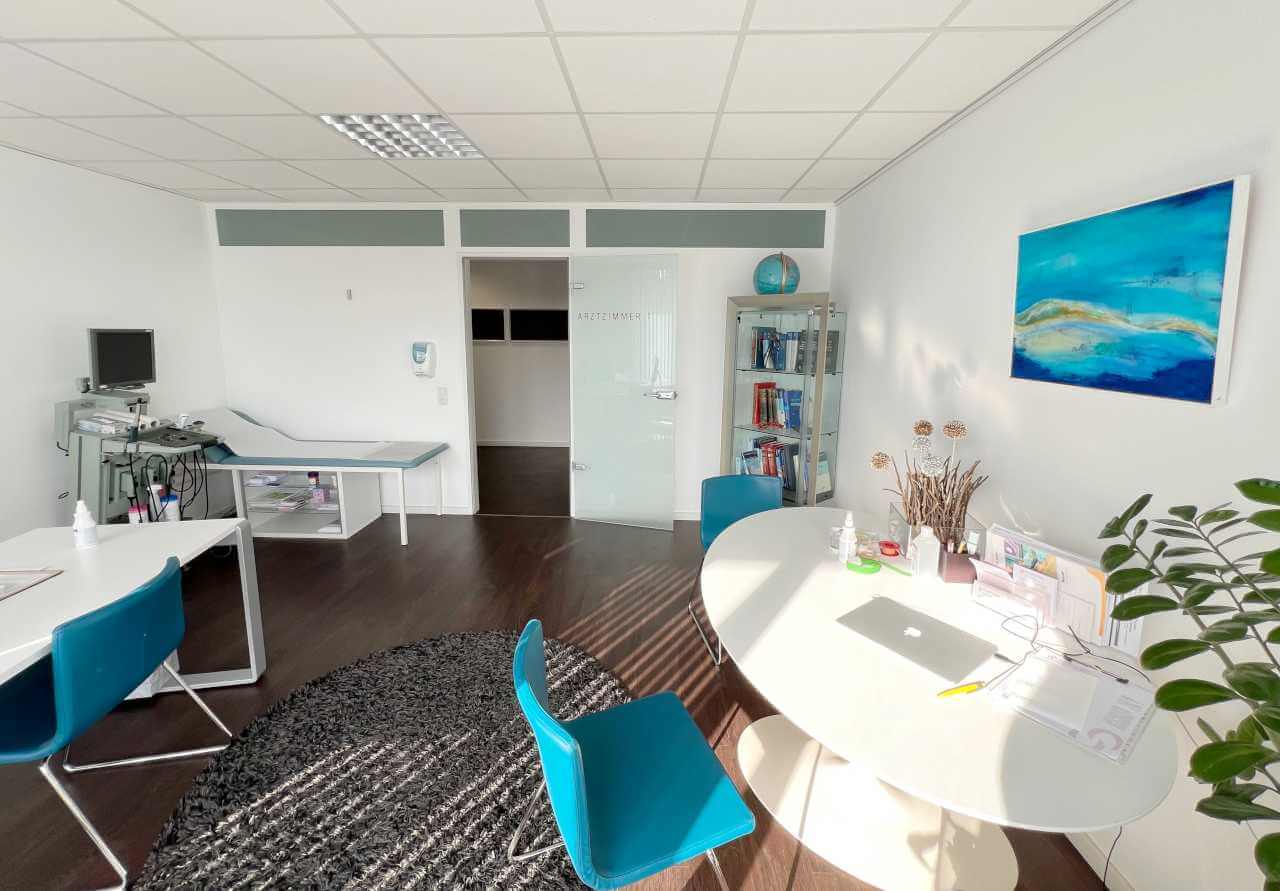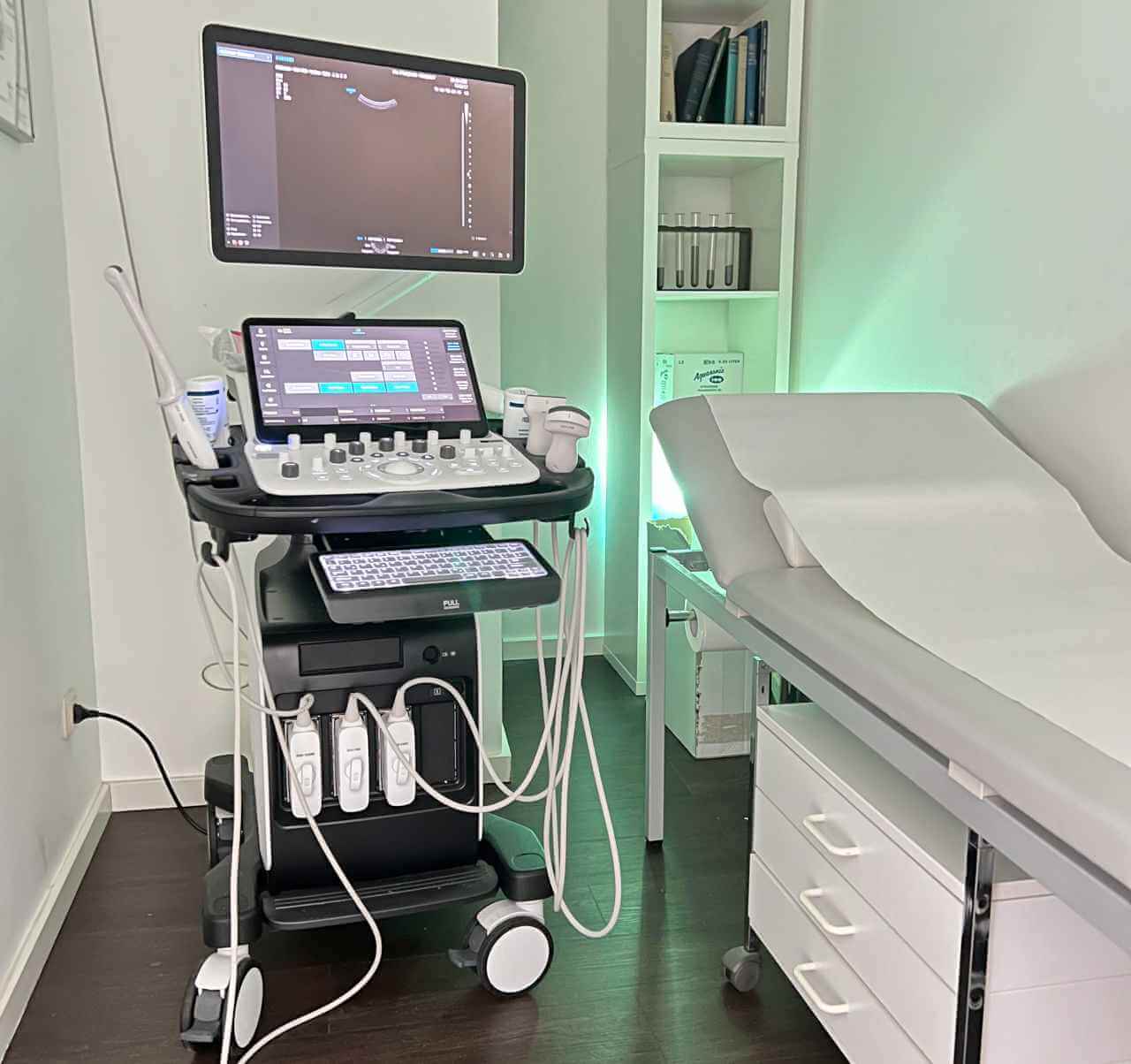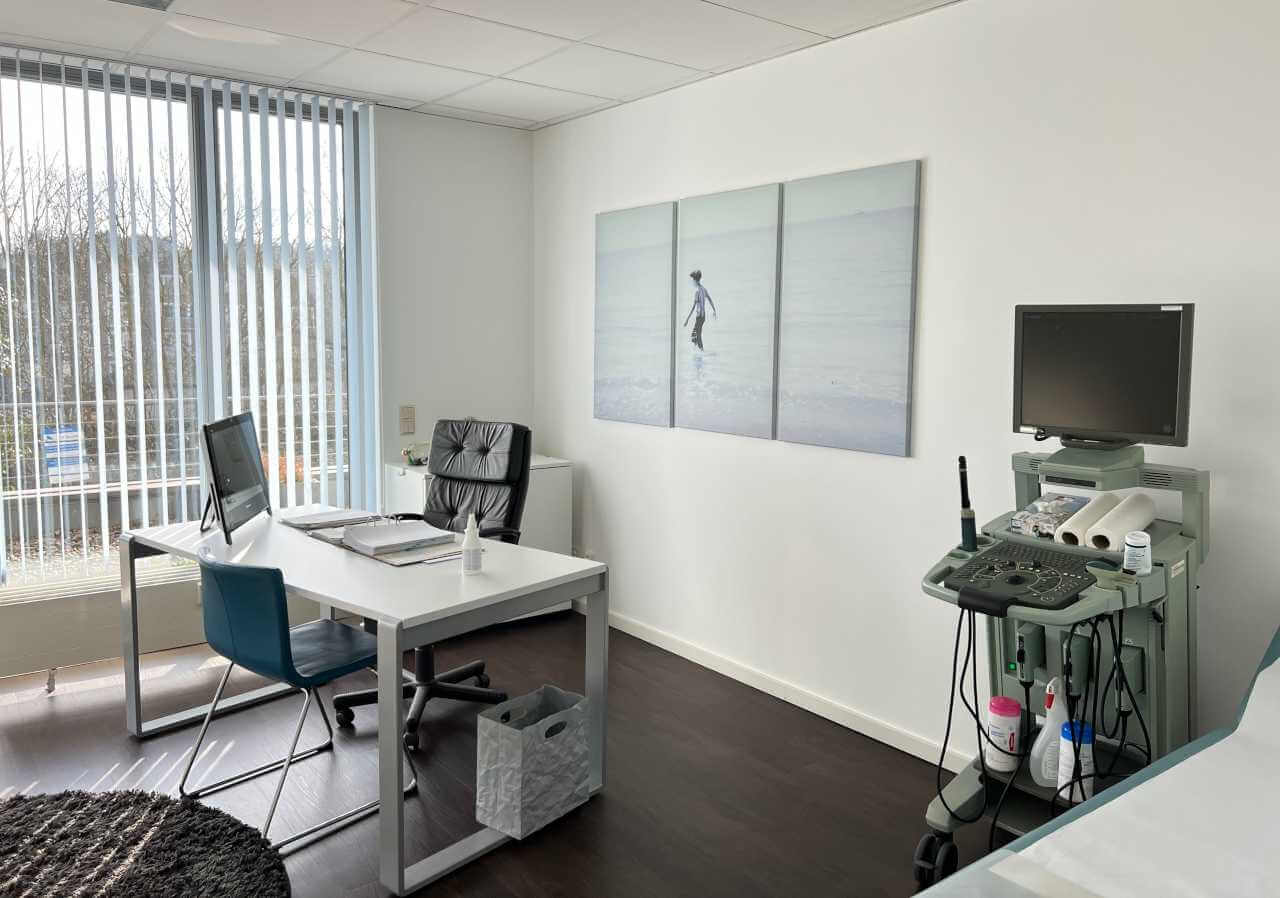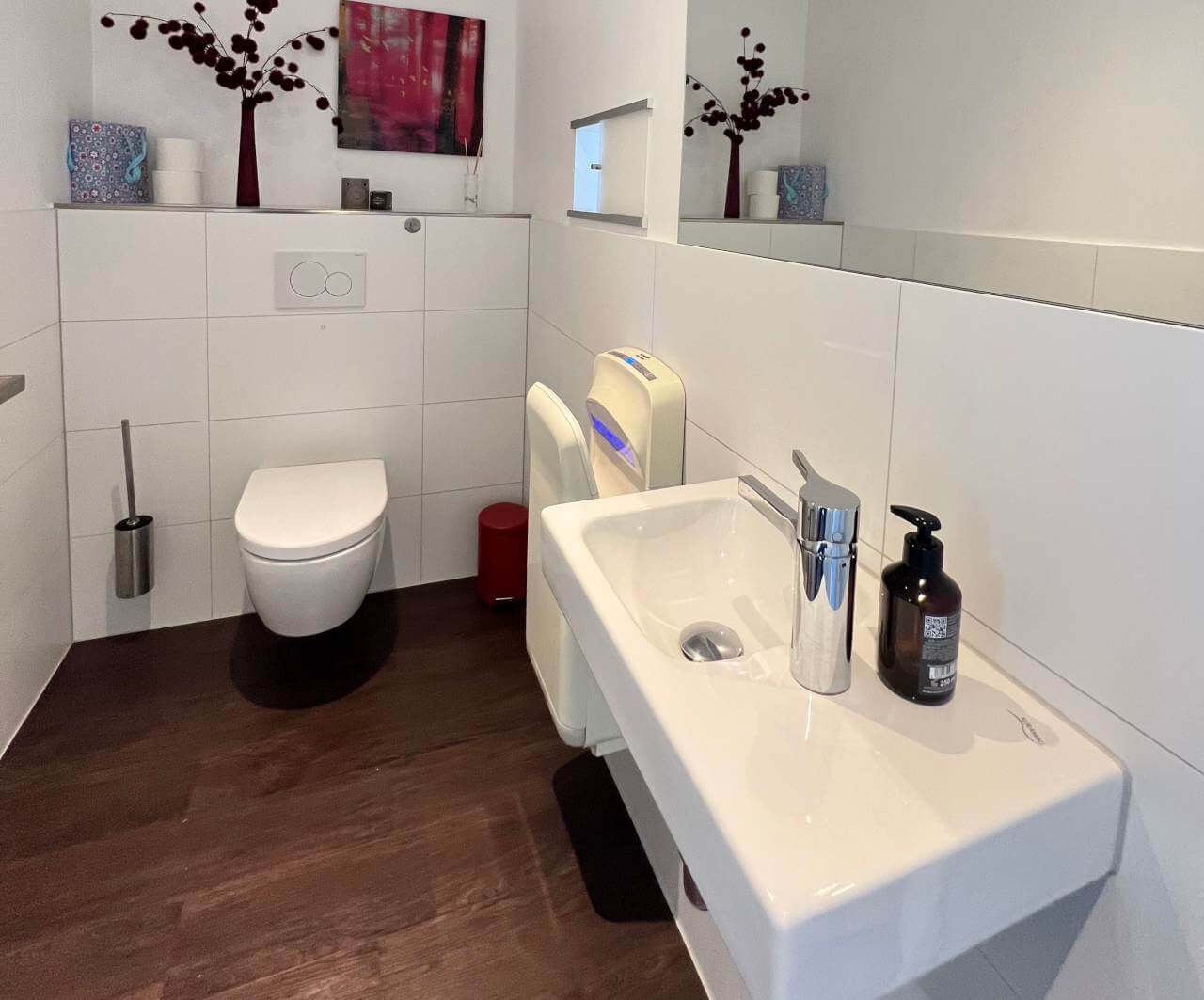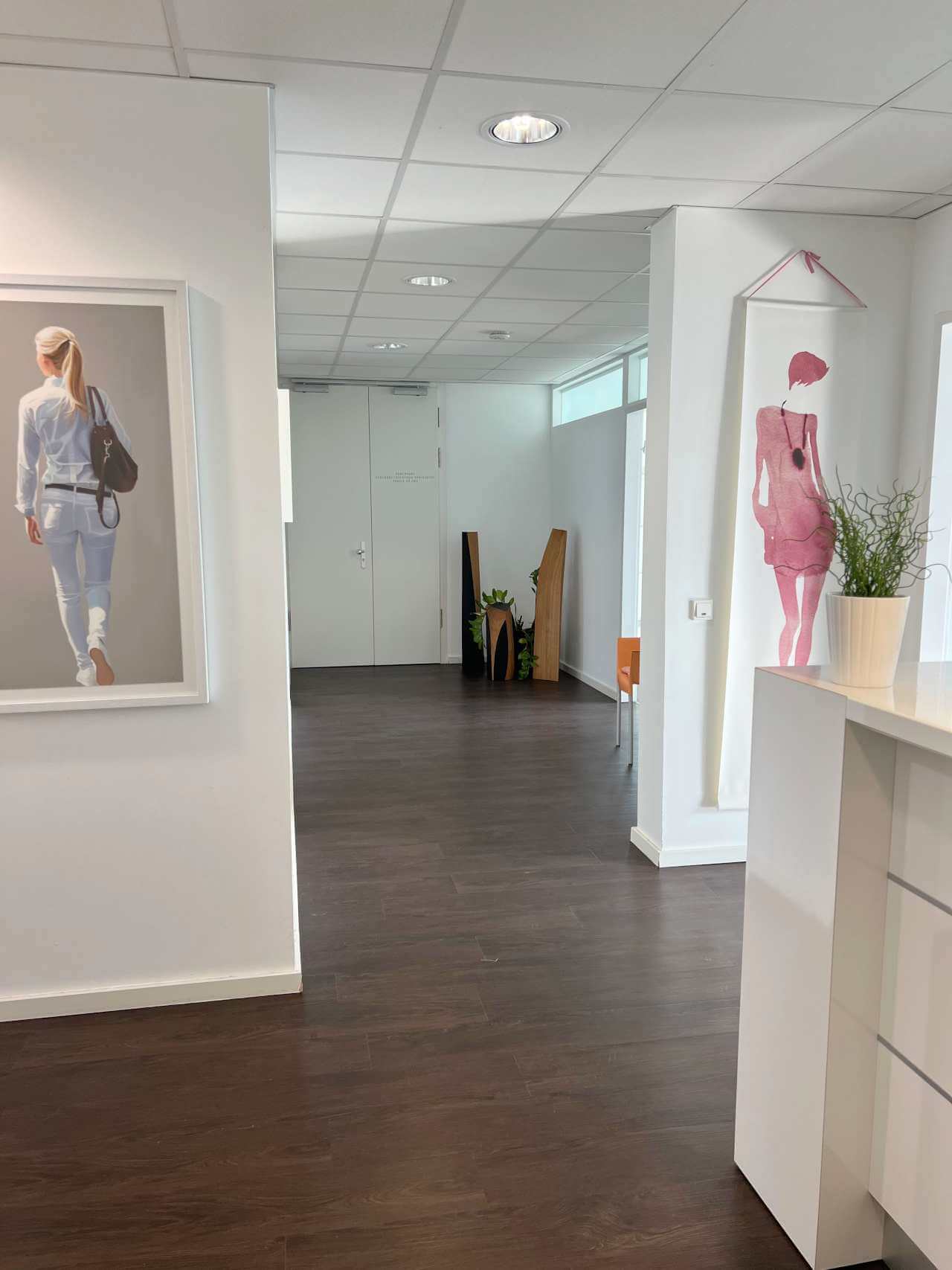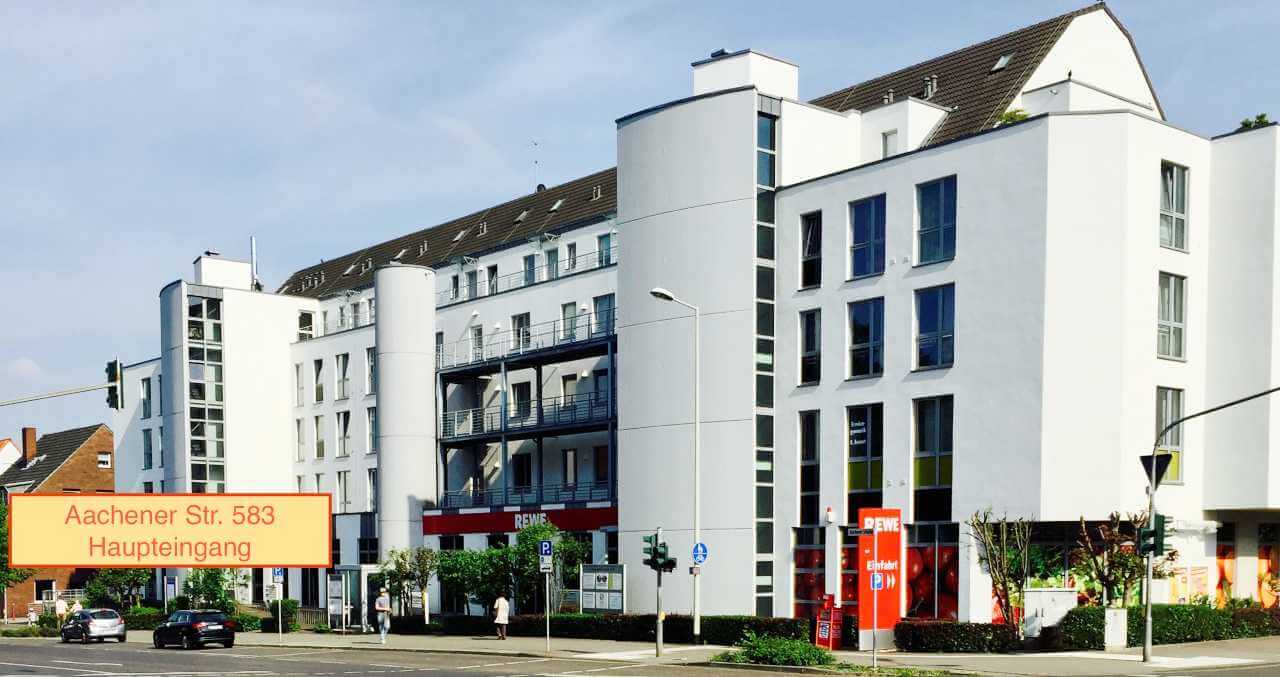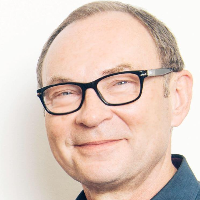
The program includes:
- Initial presentation in the clinic
- clinical history taking
- review of medical records
- physical examination
- general gynecological examination
- laboratory tests:
- complete blood count
- clinical urine test
- biochemical blood analysis
- kidney function test
- inflammation indicators (CRP, ESR)
- indicators of blood coagulation
- pelvic ultrasound
- postvoid residual measurement
- urodynamic testing
- cystogram
- cystoscopy (on indication 800 €)
- nursing services
- consultation of related specialists
- consultation of the chief physician and all leading experts
- development of individual treatment plan
- written statement
Required documents
- Medical records
- US scan, urethrocystoscopy (if available)
Service
You may also book:
 BookingHealth Price from:
BookingHealth Price from:
About the department
The Department of Adult and Pediatric Urology, Andrology at the Urology Clinic Frechen-Koenigsdorf offers a full range of medical services: from consultations and second opinions to diagnosis, treatment, and follow-up of patients. The doctors of the department specialize in the treatment of women and men with diseases of the urinary tract, as well as men with pathologies of the reproductive system. The team of urologists and andrologists helps patients with such problems as erectile dysfunction, male infertility, and andropause (male menopause). The doctors are also competent in the treatment of children with urological diseases, in particular enuresis and genital malformations in boys. The specialists often deal with oncological diseases such as prostate, testicular, kidney, and bladder cancer. Of particular interest is the treatment of benign prostatic hyperplasia using holmium laser enucleation (HoLEP) – the department is one of the leading medical institutions in Europe in this field. The department's urology team is one of the most experienced in the field of HoLEP in Germany, which is currently the most effective and minimally invasive method of treating prostate adenoma. The department also offers innovative laser treatment of prostate adenomas using the ThuLEP method, which has proven to be highly effective. The department's specialists work closely with the urology teams at the University Hospital Bonn and the University Hospital Cologne and have unrestricted access to the technical resources of these medical institutions. The Urology Clinic Kerpen-Sindorf, a partner clinic, provides its operating rooms for minor outpatient surgery. The physicians of the department focus on personalized medical care according to the requirements of the German Society of Urology (DGU) and the German Cancer Society (DKG).
The Head Physician of the department is Prof. Dr. med. Horst Schuldes. He has over 40 years of successful clinical practice and has exceptional experience in the treatment of benign and malignant urological diseases. Prof. Schuldes is considered one of the best experts in Germany and Europe in the treatment of benign prostatic hyperplasia with the innovative HoLEP method. Ten years ago, Prof. Horst Schuldes was one of the first urologists in Germany to practice the HoLEP laser procedure for the treatment of benign prostatic hyperplasia. Today, he is justifiably proud of his unique experience in this field – he has performed more than 500 successful HoLEP procedures, mainly in patients with large prostates (70 to 320 cm³). In addition, Dr. Schuldes practices the innovative ThuLEP method of thulium laser enucleation of the prostate.
The main focus of the urology team is the treatment of prostate adenomas using holmium laser enucleation (HoLEP). The medical facility is one of the most competent in Germany in the field of performing the innovative HoLEP procedure. Today, this method is the "gold standard" for the treatment of prostate adenomas, as confirmed by numerous medical articles and scientific publications on the subject, as well as by accumulated clinical experience worldwide. HoLEP requires expensive equipment and additional physician training. The department's urology team has invaluable experience in the field of holmium laser enucleation (HoLEP) and regularly demonstrates excellent treatment success rates.
Benign prostatic hyperplasia is characterized by abnormal growth of prostate tissue. The main symptoms of the disease include difficulty and frequent urination, burning during urination, and decreased urine output. Until recently, transurethral resection of the prostate (TURP), a fairly traumatic operation, was used primarily for advanced stages of prostate adenoma. The introduction of the holmium laser enucleation (HoLEP) procedure has made a real breakthrough in urological practice. Holmium laser enucleation of the prostate is a minimally invasive procedure that is performed through a transurethral approach without opening the abdominal cavity. To remove an enlarged prostate, the department's urologists use a holmium laser that preserves the integrity of the organ's outer capsule. A morcellator is used to shred the prostate tissue and transfer it to the bladder, where biological material can be collected for histological examination (this is not possible with the Greenlight method and diode laser treatment). In a relatively short period of time, HoLEP has gained great popularity around the world: the effectiveness of the method is comparable to open surgery, and it is virtually bloodless, eliminates serious surgical risks, and is successfully used to treat prostate adenomas of any size. Due to the low trauma of the treatment, the postoperative recovery period is significantly reduced. Immediately after the procedure, the patient feels significant relief. In addition, HoLEP is suitable for patients who need to take anticoagulants or acetylsalicylic acid due to underlying heart disease.
The department has achieved significant success in the treatment of oncological urological diseases. Specialists work most often with patients with prostate cancer, which is one of the most common oncological pathologies in men in the world. Special attention is paid to prostate cancer prevention: more than 8,000 prostate-specific antigen (PSA) tests and 3D ultrasound scans are performed annually. The first-line treatment for malignant prostate tumors is surgery, which is minimally invasive whenever possible. The department's urologists also specialize in systemic treatment of prostate cancer using chemotherapy, hormone therapy, and targeted therapy. A personalized treatment plan is developed for each patient, taking into account all the characteristics of his disease. Men with end-stage prostate cancer receive palliative care, which aims to relieve symptoms and improve quality of life.
The department offers modern methods of treating urinary incontinence, a condition in which involuntary urination occurs. This problem is more common in women due to the anatomical features of the genitourinary system and a number of physiological factors. The department's specialists work with all types of incontinence: stress, urgent, situational, mixed, and nocturnal (enuresis). The approach to treatment is determined individually for each patient, taking into account the form of incontinence, its causes, and the severity of symptoms. In the early stages of the pathology, the urologists of the department use only conservative methods: the patient is prescribed a course of drug therapy, pelvic floor muscle training is recommended, biofeedback, and the use of pessaries. Botulinum toxin injections are successfully performed in the department to treat urgent urinary incontinence. Surgery is the last line of treatment. Its "gold standard" is the TVT sling procedure. This procedure is considered minimally traumatic and is performed under local anesthesia.
An important area of the department's work is andrology. The clinic's specialists successfully treat men with problems such as erectile dysfunction, infertility, andropause (male menopause), and Peyronie's disease. The department also performs vasectomy, a minimally invasive surgical sterilization procedure involving ligation of the vas deferens.
The main areas of expertise of the urology team in the department are as follows:
- Laser treatment of benign prostatic hyperplasia using holmium laser enucleation of the prostate (HoLEP) and thulium laser enucleation of the prostate (ThuLEP)
- Comprehensive care for prostate cancer: diagnosis, screening, second opinion, treatment, and follow-up care
- Comprehensive care for bladder cancer: diagnosis, including flexible video endoscopy, second opinion, treatment, and follow-up care
- Vasectomy
- Circumcision
- Treatment of Peyronie's disease
- Treatment of urolithiasis by extracorporeal shock wave therapy
- Other medical services
In cooperation with the Departments of Urology at the University Hospital Bonn and the University Hospital Cologne, as well as the Urology Clinic Kerpen-Sindorf, the physicians of the Department of Adult and Pediatric Urology, Andrology at the Urology Clinic Frechen-Koenigsdorf offer the following medical services:
- Urology
- Diagnostics and treatment of prostate, kidney, bladder, and testicular malignant tumors in men
- Diagnostics and treatment of benign diseases of the prostate gland
- Diagnostics and treatment of urological diseases in women: kidney and bladder tumors, infectious diseases of the urinary tract
- Diagnostics and treatment of urolithiasis
- Diagnostics and treatment of inflammatory and functional diseases of the kidneys and bladder
- Diagnostics and treatment of urinary incontinence in women and men
- Diagnostics and treatment of malformations of the urinary tract in children, genital malformations in boys
- Diagnostics and treatment of enuresis in children
- Andrology
- Diagnostics and treatment of erectile dysfunction
- Diagnostics and treatment of male infertility
- Diagnostics and treatment of andropause (male menopause)
- Diagnostics and treatment of Peyronie's disease
- Diagnostics and treatment of disorders of sexual development in boys
- Diagnostics and treatment of other diseases
The Department of Adult and Pediatric Urology, Andrology at the Urology Clinic Frechen-Koenigsdorf in cooperation with the Urology Clinic Kerpen-Sindorf and the Departments of Urology at the University Hospital Bonn and the University Hospital Cologne offers the following diagnostic and therapeutic procedures:
- Diagnostic examinations
- Computer-assisted urodynamic testing
- Ultrasound scans of the liver, kidneys, spleen, blood vessels, bladder, prostate, testicles, and other organs
- Prostate cancer screening with high-resolution 3D transrectal ultrasound, Doppler ultrasound, and biopsy
- Doppler ultrasound of the blood vessels
- 3D ultrasound scanning of the abdominal cavity and testicles, as well as transrectal scanning with the cutting-edge BK MEDICAL Pro Focus device
- Ultrasound scanning of the pelvic floor organs in women
- Digital X-ray scans of the urinary tract
- X-ray-guided endoscopic examination of the urinary tract
- Digital video endoscopy of the urinary system: urethra, bladder, ureters, and renal pelvis
- Functional testing of the urinary system
- Primary diagnostics of psychosomatic diseases with functional disorders (for example, erectile dysfunction)
- Laboratory tests: bacteria culture tests, hormonal tests, PSA tests, tumor marker tests, and others
- Comprehensive andrological examinations
- Urine cytology
- Therapeutic procedures
- Drug therapy, including pain management and palliative care for urological malignancies
- Laser treatment of benign prostatic hyperplasia with innovative HoLEP and ThuLEP techniques
- Extracorporeal shock wave therapy
- Vasectomy
- Circumcision
- Male sterilization
- Other diagnostic and treatment methods
Curriculum vitae
Higher Education and Professional Career
- 1974 - 1980 Medical studies, Ernst Moritz Arndt University of Greifswald.
- 1979 Doctorate, Ernst Moritz Arndt University of Greifswald.
- 1980 Admission to medical practice.
- 1983 - 1988 Research Fellow and advanced training, Department of Urology, Schlosspark Hospital Charlottenburg (academic hospital of the Free University of Berlin).
- 1984 Doctorate, Free University of Berlin.
- 1988 - 1999 Research Fellow, Department of Adult and Pediatric Urology, University Hospital Frankfurt am Main.
- 1992 Board certification in Urology, Medical Association of Hesse.
- 1994 Senior Physician, Department of Adult and Pediatric Urology, University Hospital Frankfurt am Main.
- 1996 Habilitation in Urology. Subject: "The role of the cell membrane in the chemoresistance of cancer cells. Studies on the CHO cell line, RT 112 cell line, and bladder cancer."
- 1997 PD, Department of Medicine, Johann Wolfgang Goethe University Frankfurt am Main.
- 1999 - 2013 Head Physician, Department of Adult and Pediatric Urology, St. Catherine Hospital Frechen.
- 2003 Extraordinary Professorship, Department of Medicine, Johann Wolfgang Goethe University Frankfurt am Main.
- 2014 Doctor, Private Urology Practice at the DRK Altenkirchen-Hachenburg Hospital.
- Since 2015 Head Physician, Department of Adult and Pediatric Urology, Andrology, Urology Clinic Frechen-Koenigsdorf.
Memberships in Professional Societies
- Berlin Society of Urology (BUG).
- German Society of Urology (DGU).
- German Cancer Society (DKG).
- North Rhine-Westphalian Society of Urology
- South-West-German Society of Urology.
- Urologic Oncology Working Group.
Photo of the doctor: (c) Urologische Privatpraxis Frechen-Königsdorf
About hospital
The Urology Clinic Frechen-Koenigsdorf is a modern medical facility focused on the qualified care of patients with urological diseases. The clinic provides comprehensive medical care for women, men, and children with diseases of the urinary system. Special attention is paid to the treatment of diseases of the male reproductive system and andrological disorders. The Urology Clinic Frechen-Koenigsdorf has earned a reputation as one of the best centers in Germany and abroad for the treatment of benign prostatic hyperplasia using holmium laser enucleation (HoLEP). HoLEP is an innovative minimally traumatic procedure that has proven to be highly effective, including in the treatment of large prostate adenomas. It was developed as a modern alternative to transurethral resection of the prostate (TURP), which has long been the mainstay of adenoma removal. Today, HoLEP is recognized as the "gold standard" for the treatment of benign prostatic hyperplasia, as evidenced by numerous studies and the successful practice of urologists around the world.
The Head Physician of the Urology Clinic Frechen-Koenigsdorf, Prof. Dr. med. Horst Schuldes, is one of the best urologists in Germany. Prof. Schuldes is a pioneer in the use of the innovative laser procedures HoLEP and ThuLEP in Germany, which are especially effective in the treatment of large prostate adenomas (70-80 cm³). The specialist has performed more than 500 successful HoLEP laser operations, including unique cases with adenoma volumes of up to 320 cm³. This extensive experience provides Prof. Schuldes with exceptional expertise in performing HoLEP and ThuLEP procedures.
The clinic's team of urologists, led by Prof. Dr. med. Horst Schuldes, has extensive experience in the diagnosis and conservative treatment of prostate, testicular, kidney, and bladder malignancies. The clinic offers a "second opinion" service to clarify the diagnosis and provide an independent assessment of the prescribed treatment. The medical facility has accumulated extensive experience in the field of vasectomy, circumcision, treatment of Peyronie's disease, and kidney stone fragmentation using extracorporeal shock wave lithotripsy. The Urology Clinic Frechen-Koenigsdorf also offers consultations for men with andrological diseases. The specialists focus on patients with erectile dysfunction, male infertility, and andropause (male menopause). The doctors of the clinic are also competent in the medical care of young patients with enuresis, malformations of the urinary system, and genital malformations in boys.
The clinic is proud of its advanced diagnostic base: all modern urological examinations are available here, ranging from classical ultrasound, high-resolution 3D transrectal sonography, Doppler scanning, urodynamic testing, digital X-ray to digital video endoscopy of the urinary system, including flexible video endoscopy. The clinic has its own laboratory where general blood and urine tests, hormonal tests, tumor marker tests, PSA tests, and many other tests are performed.
The Urology Clinic Frechen-Koenigsdorf closely cooperates with doctors from the Departments of Urology at the University Hospital Bonn and the University Hospital Cologne, and also has access to the technical facilities of these leading German medical institutions. Minor outpatient procedures such as circumcision and sterilization are performed in the modern Urology Clinic Kerpen-Sindorf. The cooperation with the top urology centers of the German healthcare system is a great advantage for the clinic's patients, as they have access to all the resources of these medical facilities and the rich clinical experience of the country's best urology experts.
The Urology Clinic Frechen-Koenigsdorf follows high international standards of quality medical care, paying special attention to the comfort of patients. The doctors at the clinic provide not only professional treatment, but also psychological support at all stages of therapy, taking into account the individual wishes of each patient. Patients confidently entrust their health to the clinic's doctors, who have everything they need to achieve good results.
Photo: (с) Urologische Privatpraxis Frechen-Königsdorf
Accommodation in hospital
Hotel
You may stay at the hotel of your choice during the outpatient program. Our managers will support you for selecting the best option.
